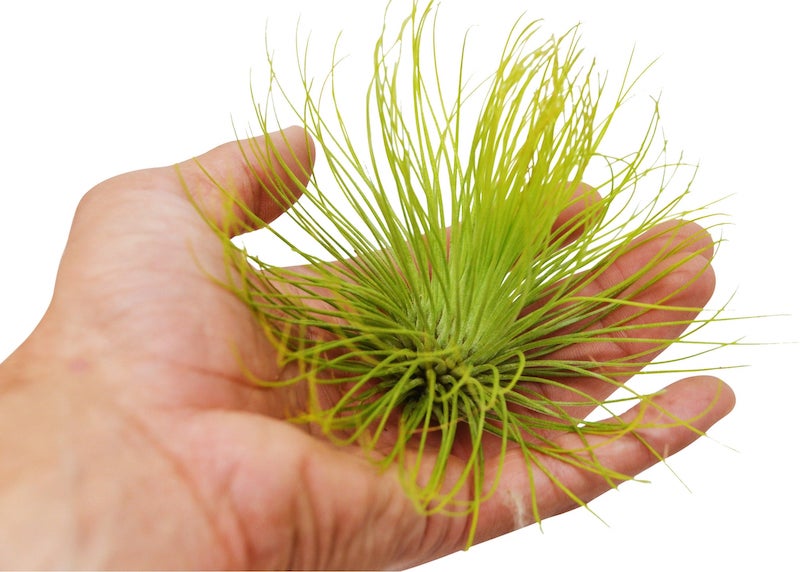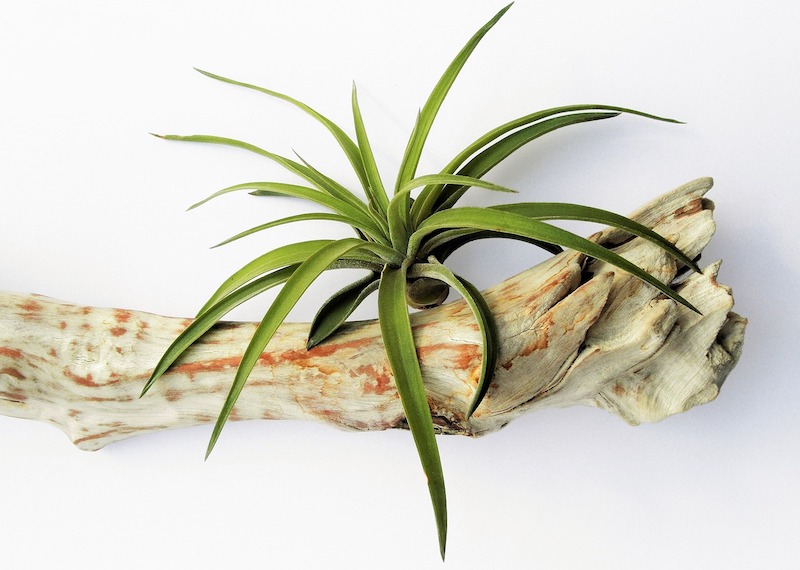Air Plants are one of the easiest houseplants to grow and use to decorate indoor and outdoor spaces. As part of the Bromeliad family, Air Plants are considered completely non-toxic and safe to grow around humans and pets. The only parts of an Air Plant that may cause injury are the edges or pointed tips of the leaves. All Air Plants should be handled as little as possible, but the larger varieties could cause pokes and cuts if not handled gently and with some degree of caution. As with any other houseplant, if large amounts of the leaves are ingested, they could cause stomach and intestinal upset.

Are Air Plants Poisonous to Children?
Kids and Air Plants are a great combination. The wide variety of Air Plants makes for interesting living sculptures in a bedroom or playroom with little fear that either the children or plant will be harmed by everyday living. Air Plants are a great way to introduce children from as young as a toddler to the techniques of houseplant gardening. The plants can be used to teach about climates and plant interaction through the use of terrariums or by adding to a pet reptile enclosure.
Are Air Plants Poisonous to Dogs?
Dogs are not affected by Air Plants in general. There are no toxic chemicals present in the leaves to cause intestinal issues or contact dermatitis. Young puppies that like to chew on plants should be kept away from the plants so that leaves are not damaged. Also, larger varieties of Air Plant, such as Tillandsia xerographica or T. stricta, have flatter leaves that tend to have sharp edges and pointy tips that can cause mouth or stomach pain.
Are Air Plants Poisonous to Cats?
Cats are less likely to be enticed to chew on Air Plants than dogs, but if it does happen, choking, mouth irritation, and stomach upset could result. Once the offending piece of foliage is coughed up, your cat will not likely have any further signs of discomfort.
Are Air Plants Poisonous to Other Animals?
Air Plants are non-toxic for a vast majority of livestock and pets. Often Tillandsia is used to furnish reptile enclosures, creating habitats that resemble native climates.
Symptoms Of Air Plant Poisoning
Mild irritation of the mouth and stomach can result from ingesting Air Plants. Generally, only large amounts of the plant will cause any symptoms. Always check with your doctor or veterinarian for guidance if you suspect Air Plant poisoning.
Here are some common symptoms to look out for:
- Scratches from the pointy tips or edges of leaves
- Irritated mouth
- Stomach upset
- Vomiting
- Diarrhea

Preventing Air Plant Poisoning
Most often what looks like poisoning from an Air Plant is a reaction to a plant it is growing with. Growing Air Plants alongside or in the branches of houseplants can be a great way to provide a more natural atmosphere for the plants. When a child or pet eats part of the poisonous plant it could be confused with the Air Plant. Growing non-toxic plants such as African Violet, Areca Palm, Boston Fern, and Ponytail Palm is a much safer option to create a fabulous indoor gardenscape if you have children or pets.
Pet Poison Helpline
If something were to happen to your furry friend, and you suspect that they are suffering from Air Plant poisoning, there is a poison control hotline to call for 24/7 vet advice. It is called the Pet Poison Hotline, and their phone number is (855) 764-7661.
 |
Author Robbin Small - Published 3-22-2023 |
